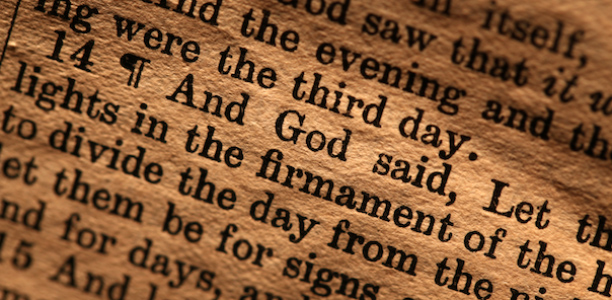By David Faust
 Most Bible readers don’t place the book of Leviticus high on their list of favorite Scriptures. Many who attempt to read the Bible from start to finish do fine until they get to Leviticus. Genesis grabs attention by informing us about the creation of the universe, Noah and the flood, and Joseph’s rise to power in Egypt. Exodus tells fascinating stories about the 10 plagues and the parting of the Red Sea.
Most Bible readers don’t place the book of Leviticus high on their list of favorite Scriptures. Many who attempt to read the Bible from start to finish do fine until they get to Leviticus. Genesis grabs attention by informing us about the creation of the universe, Noah and the flood, and Joseph’s rise to power in Egypt. Exodus tells fascinating stories about the 10 plagues and the parting of the Red Sea.
Then comes Leviticus, with (drumroll, please) assorted laws about mildew, leprosy, unclean foods, and priestly wardrobes. Leviticus starts with burnt offerings and ends with tithing—topics that don’t send happy shivers down 21st century spines. Most of us don’t even read the fine print on credit card applications; why read a book of ancient Hebrew laws?
Leviticus, however, plays an important role in the flow of God’s revelation, and we can learn useful lessons from it.
Serious Reminders
Leviticus compels us to take obedience seriously. Like guardrails on a mountain highway, God’s laws protect his people from danger. The book of Leviticus served as a manual to show what God wanted the Israelites to do as they lived under the Mosaic covenant. Dietary laws (Leviticus 11) and rules about sexual behavior (chapter 18) kept them healthier and set them apart from their pagan neighbors. Even under the new covenant, we demonstrate our love for God by obeying him (1 John 5:3).
Leviticus reminds us to take God seriously. Moses and Aaron “blessed the people; and the glory of the Lord appeared to all the people. Fire came out from the presence of the Lord and consumed the burnt offering and the fat portions on the altar. And when all the people saw it, they shouted for joy and fell facedown” (Leviticus 9:23, 24).
We talk about going to church as if it’s no big deal, but worship is serious business. Aaron’s sons, Nadab and Abihu, were burned to death when they offered “unauthorized fire” on God’s altar (10:1-3). When we gather for worship, we come before the one who says, “I am the Lord your God; consecrate yourselves and be holy, because I am holy” (11:44). No wonder the New Testament tells us to “worship God acceptably with reverence and awe, for our ‘God is a consuming fire’” (Hebrews 12:28, 29).
Hints of Grace
The book of Leviticus contains good news as well. Scattered throughout the book are indications of God’s kindness. Rules about generosity, fairness, and honesty safeguarded the rights of the poor, the hired worker, and the consumer (Leviticus 19:9, 10, 13, 15, 35, 36). “Love your neighbor as yourself” (19:18) is one of the greatest laws ever spoken. The sabbatical years and the Year of Jubilee (25:1-17) built hope into the seasons of life and encouraged God’s people to rest and trust.
The rules and regulations in Leviticus make us wonder, If this is what it takes to be right with God, how can any of us be saved? And that’s just the point! Our futility in keeping the old law points us to Christ, who saves us by grace (Galatians 3:23-27). Animal blood offered on the altar foreshadowed the ultimate sacrifice of Christ on the cross, and so did the scapegoat that carried the sins away from the people on the day of atonement (Leviticus 16:20-22).
Leviticus isn’t my favorite book of the Bible, but it’s in God’s Word for a reason. It points me to Christ—and for that I am grateful.
David Faust serves as the Associate Minister at East 91st Street Christian Church in Indianapolis, Indiana.
The Lookout’s Bible Reading Plan for February 22, 2015
Use this guide to read through the Bible in 12 months. Follow David Faust’s comments on the highlighted text in every issue of The Lookout.
Matthew 17:14-27
Acts 24
Psalm 39
Leviticus 5–7
Matthew 18:1-14
Acts 25:1-12
Psalm 40
Leviticus 8–10
Matthew 18:15-35
Acts 25:13-27
Psalm 41
Leviticus 11–13
Matthew 19:1-15
Acts 26:1-18
Psalm 42
Leviticus 14, 15
Matthew 19:16-30
Acts 26:19-32
Psalm 43
Leviticus 16, 17
Matthew 20:1-16
Acts 27:1-26
Psalm 44
Leviticus 18–20



Comments: no replies